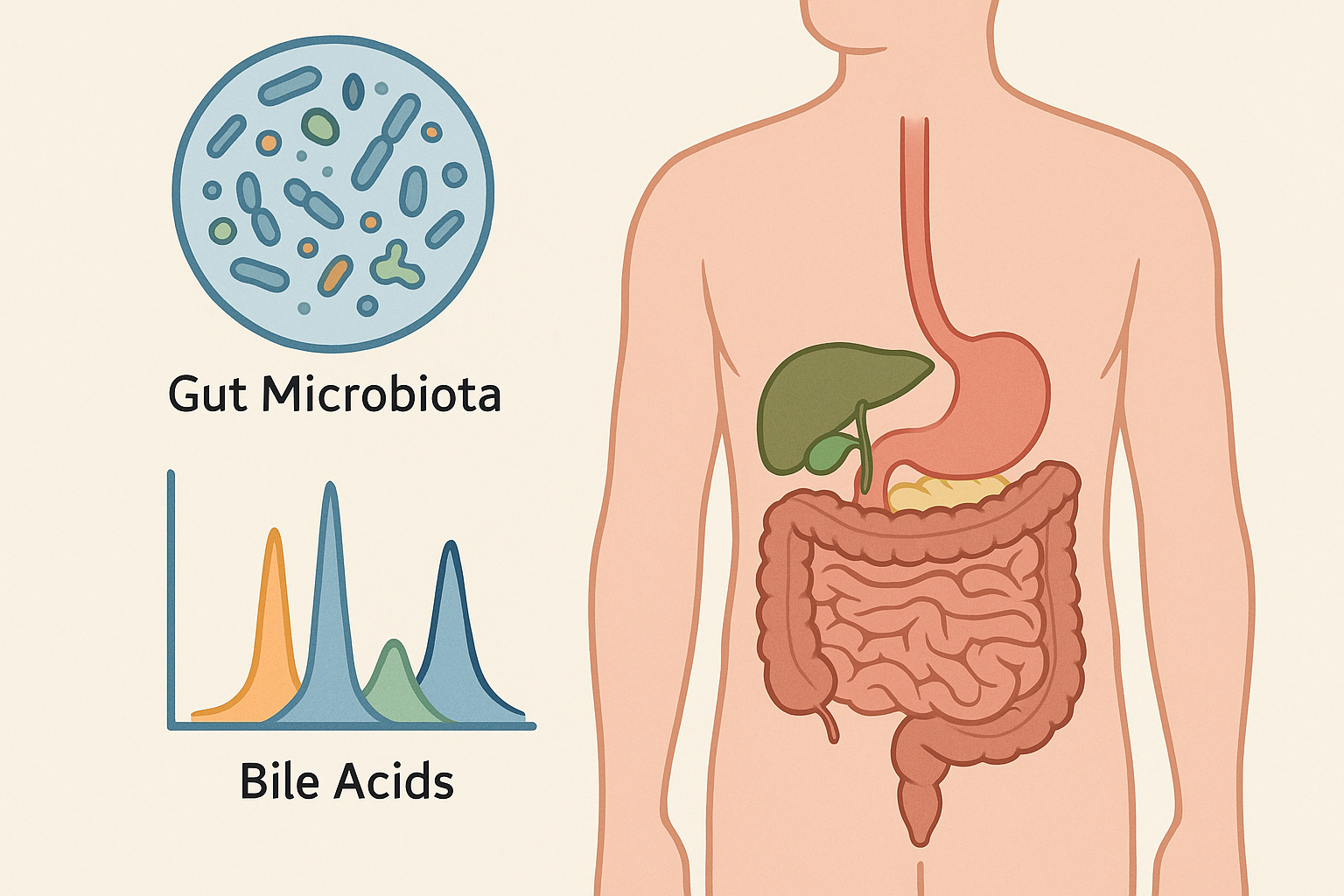The human gut is often called the “second brain,” influencing everything from digestion to immunity and even mental well-being. While bacteria and probiotics usually take center stage in discussions about gut health, there is another player that deserves equal attention bile acids metabolite. These powerful compounds are not just byproducts of digestion; they actively regulate metabolic processes, maintain microbial balance, and impact long-term health outcomes.
In this article, we’ll explore what bile acids metabolites are, how they function, and why they are key to understanding the link between gut health and metabolism.
What Are Bile Acids Metabolites?
Bile acids are produced in the liver from cholesterol and secreted into the intestine to aid in fat digestion. Once they enter the gut, these acids interact with microbes, leading to the formation of bile acids metabolites.
These metabolites serve multiple purposes:
-
They break down dietary fats into absorbable components.
-
They act as signaling molecules that influence metabolism.
-
They regulate the composition of the gut microbiome.
Instead of being passive digestive aids, these metabolites play an active role in shaping how our body processes nutrients and maintains energy balance.
The Role of Bile Acids Metabolites in Gut Health

1. Supporting Microbial Diversity
The gut microbiome contains trillions of bacteria, fungi, and other microorganisms. Bile acids metabolites help maintain this ecosystem by preventing overgrowth of harmful bacteria. Certain metabolites even act as antimicrobial agents, promoting a balanced and resilient gut flora.
2. Enhancing Nutrient Absorption
Without bile acids and their metabolites, the absorption of essential fats, vitamins (like A, D, E, and K), and fatty acids would be inefficient. This nutrient absorption is fundamental for maintaining immune health, hormone regulation, and energy levels.
3. Communication Between Gut and Liver
Bile acids metabolites act as messengers in the “gut-liver axis.” They provide feedback to the liver, regulating bile production and influencing cholesterol metabolism. This feedback loop is essential for preventing metabolic imbalances.
The Impact on Metabolism
Energy Balance
Certain bile acids metabolites interact with receptors such as FXR (Farnesoid X Receptor) and TGR5. These receptors play a role in glucose regulation, insulin sensitivity, and energy expenditure.
-
FXR activation helps control cholesterol and triglyceride levels.
-
TGR5 activation promotes energy burning and reduces inflammation.
This makes bile acids metabolites crucial in protecting against conditions like obesity and type 2 diabetes.
Fat Storage and Utilization
By influencing how the body processes fats, bile acids metabolites determine whether fats are stored or used as fuel. When functioning properly, they promote efficient fat utilization and reduce the risk of excessive fat storage.
Hormonal Regulation
These metabolites also impact hormones related to appetite and metabolism. For instance, they can stimulate the release of GLP-1 (glucagon-like peptide-1), a hormone that enhances insulin secretion and controls appetite.
Bile Acids Metabolites and Gut Disorders
When bile acid metabolism is disrupted, it can lead to gastrointestinal and metabolic disorders, such as:
-
Irritable Bowel Syndrome (IBS): Altered bile acid signaling contributes to symptoms like diarrhea or constipation.
-
Inflammatory Bowel Disease (IBD): An imbalance in bile acids metabolites may worsen inflammation.
-
Cholestasis: A condition where bile flow from the liver is reduced, leading to harmful accumulation of bile acids.
-
Metabolic Syndrome: Insulin resistance, high cholesterol, and obesity are often linked to abnormal bile acid metabolism.
By studying bile acids metabolites, researchers can better understand these conditions and develop targeted therapies.
The Link to the Gut-Brain Axis
Recent studies highlight how bile acids metabolites influence not only gut and metabolic health but also brain function. By interacting with gut microbes and signaling pathways, they may affect mood, stress response, and even cognitive performance. This underscores their potential role in mental well-being and neurological health.
Advances in Metabolomics and Bile Acids Research
Metabolomics, the large-scale study of metabolites, has revolutionized how we view bile acids. Using advanced tools such as mass spectrometry, researchers can identify and quantify bile acids metabolites with remarkable precision.
This has opened doors to:
-
Biomarker discovery for diagnosing gut and metabolic disorders.
-
Personalized nutrition strategies tailored to individual metabolic profiles.
-
Drug development targeting specific bile acid pathways for conditions like diabetes or liver disease.
At IROA Technologies, innovations in metabolomic standards and analysis empower researchers to measure and interpret bile acids metabolites with higher accuracy, leading to more reliable insights in biomedical research.
Future Directions: Therapeutic Potential
The therapeutic potential of bile acids metabolites is gaining attention. Possible future applications include:
-
Probiotic therapies that modulate bile acid metabolism for better gut health.
-
Synthetic bile acid analogs to treat metabolic diseases.
-
Targeted medications that manipulate bile acid signaling pathways for obesity, diabetes, or liver disorders.
As research grows, bile acids metabolites may become a cornerstone in precision medicine, offering new ways to prevent and treat chronic conditions.
Conclusion
Far from being simple digestive helpers, bile acids metabolites are central to gut health and metabolism. They regulate microbial balance, influence nutrient absorption, and play a critical role in metabolic pathways that affect weight, cholesterol, and energy.
Understanding their impact not only deepens our knowledge of human biology but also opens the door to new therapies in digestive and metabolic health. With ongoing advancements in metabolomics, IROA Technologies is helping researchers unlock the full potential of these metabolites for better health outcomes.
For more insights into the science of bile acids and their role in metabolism, visit the National Center for Biotechnology Information (NCBI)







